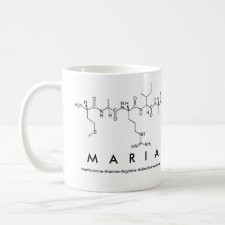
Authors: Martins N, Carreiro EP, Locati A, Ramalho JPP, Cabrita MJ, Burke AJ, Garcia R
Article Title: Design and development of molecularly imprinted polymers for the selective extraction of deltamethrin in olive oil: An integrated computational-assisted approach.
Publication date: 2015
Journal: Journal of Chromatography A
Volume: 1409
Page numbers: 1-10.
DOI: 10.1016/j.chroma.2015.07.025
Alternative URL: http://www.sciencedirect.com/science/article/pii/S0021967315009760
Abstract: This work firstly addresses the design and development of molecularly imprinted systems selective for deltamethrin aiming to provide a suitable sorbent for solid phase (SPE) extraction that will be further used for the implementation of an analytical methodology for the trace analysis of the target pesticide in spiked olive oil samples. To achieve this goal, a preliminary evaluation of the molecular recognition and selectivity of the molecularly imprinted polymers has been performed. In order to investigate the complexity of the mechanistic basis for template selective recognition in these polymeric matrices, the use of a quantum chemical approach has been attempted providing new insights about the mechanisms underlying template recognition, and in particular the crucial role of the crosslinker agent and the solvent used. Thus, DFT calculations corroborate the results obtained by experimental molecular recognition assays enabling one to select the most suitable imprinting system for MISPE extraction technique which encompasses acrylamide as functional monomer and ethylene glycol dimethacrylate as crosslinker. Furthermore, an analytical methodology comprising a sample preparation step based on solid phase extraction has been implemented using this "tailor made" imprinting system as sorbent, for the selective isolation/pre-concentration of deltamethrin from olive oil samples. Molecularly imprinted solid phase extraction (MISPE) methodology was successfully applied for the clean-up of spiked olive oil samples, with recovery rates up to 94%
Template and target information: deltamethrin
Author keywords: molecularly imprinted polymer, molecular recognition, DFT calculations, solid phase extraction, olive oil, Deltamethrin



Join the Society for Molecular Imprinting

New items RSS feed
Sign-up for e-mail updates:
Choose between receiving an occasional newsletter or more frequent e-mail alerts.
Click here to go to the sign-up page.
Is your name elemental or peptidic? Enter your name and find out by clicking either of the buttons below!
Other products you may like:
 MIPdatabase
MIPdatabase









